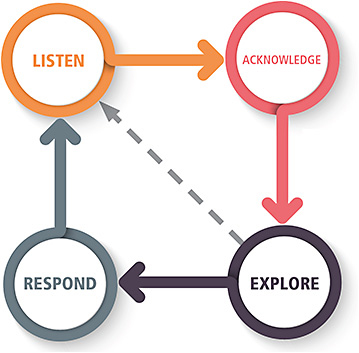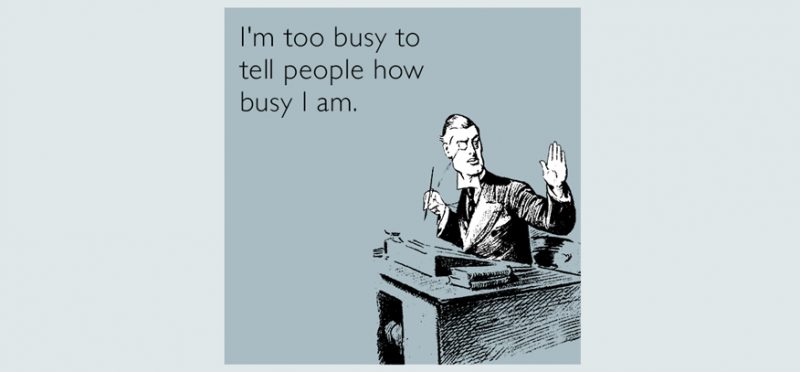Every customer you talk to has their own reasons for refusing to make a purchase. Because the truth is that they would have bought your product if they felt the price, value, relevance to current need, affordability, it all makes sense.
To be successful, salespeople must learn to discover and handle objections wisely. This means that you need to respond to buyers in a way that changes their mind and reduces their mistrust of the product.
Some salespeople make the mistake of trying to pressure buyers, and as a result, they fail to increase their closing success rates.
Instead of telling customers they’re wrong, help them come to the exact opposite conclusion about your product. If you can’t convince them, chances are high that they might not be a good fit for your product or service.
>>> What is Upsell? Use Upsell and Cross-selling tricks to sell
Why Is Dealing With Rejections Important?
The longer you leave the doubt in the customer’s mind, the less likely you are to convince them. You can identify these points of doubt by asking these questions:
- “Do you have any concerns about product/service A?”
- “Are there any difficulties that prevent you from buying?”

To improve customer problem solving skills. First, try to apply the LAER model: Listen, Acknowledge, Explore, Respond. Give the prospect the opportunity to speak, then repeat the main points you hear. Next, try to research the reasons for these difficulties that the customer has. Finally, give a suitable suggestion.
Keeping track of the most common problems your customers face is also very helpful, as you identify them, which means you can better solve them too.
Discover the 20 most common objections, and how to deal with them
Refuse to buy because of price and budget
1. Too expensive
Price is one of the most common customer issues. Customers often complain that it’s expensive because they don’t believe or know about the value of your product.
If you focus on talking about value, you will shape the mind of the customer more clearly whether this product is expensive or cheap. Therefore, the discount strategy is not necessarily a smart move.
2. I don’t have enough money
Maybe this problem is because the customer’s business is not really big enough to pay for your products and services. Keep an eye on their growth going forward.

3. We don’t have enough budget for this
Another variation of “not enough money”, could be that your client is having problems with cash flow management at his business.
You can offer paid time support that can help customers feel more comfortable, without the pressure of a buying decision.
Refuse to buy because of competitors
4. We are cooperating with party A
If your customer is working with a competitor, the advantage here is that they have clearly identified their needs and problems. They also understood the solutions to help them solve the problem. So you don’t have to do anything but talk about your product.
The fact that they are cooperating or using Party A’s products does not mean that they are 100% satisfied.
Study this relationship: Why do they choose a competitor’s products and services? What’s good and what’s not? Focus on complaints that your product doesn’t have or can’t solve.
5. I can buy the same product as yours at a cheaper price
Find out who the real purpose of the person you are talking to is. Is that customer trying to compare your product prices so he can expect you to give them a discount?
Or the fact that it’s full of products that have the same function but are more affordable?
If the first is the case, you can choose the maximum discount you can accept, along with emphasizing the features of the product to the customer. Decline if they ask for a lower discount. If it’s the latter, delve into the value, and the overriding feature, the difference you have (if it’s the same, there’s really no way).

6. I still think Party A’s products are good
What if customers still feel they are happy? Use the same old strategy – find out why customers believe their relationship with your competition is beneficial, uncover any possible weaknesses where your product is better.
7. Party A says your product “….” (something is not true)
According to sales expert Jeff Hoffman, salespeople should respond, “That’s not right,” and then stop.
Hoffman says that 90% of this feedback is enough to satisfy buyers. If the customer is still unsure, they will automatically ask follow-up questions.
From there, you can provide more relevant information: “Our products are made in Thailand, not in China. We have a map of the factory area and genuine distributors if you need to see…”
Refuse to buy because of authority and ability
8. I am not authorized to decide to buy
No problem. Ask that person for the contact information of the person authorized to purchase your product.
9. We are saving the budget
This happens very rarely, but when it does, it’s also very difficult to deal with them effectively other than waiting.
Refuse to buy because of need
10. I’ve never heard of your company name
Treat this refusal as a request for additional information. Don’t stuff them with a half-hour long paragraph, but instead a summary and value of your product or company commitment.
For example: “My side is a company that provides advertising solutions for online business people like you. I have the latest running techniques and models, and the latest updated support tools can be of great help to your work.”
11. I have no need to solve the problem you just said
You are also more likely to encounter this rejection, because the customer may not really realize their problem. Or solving this is not the #1 priority.
>>> See more 4 tips to solve customer problems effectively
12. It’s not clear to me what your product can do
One more request for product information that you need to provide. Re-emphasize how your product can solve their problems in great detail.

13. I don’t understand your product
Don’t give up too quickly. Ask customers if they don’t understand or are unclear about the product, then try to explain it to them in a variety of ways.
You can ask the technical or IT team to help you in this customer acquisition process.
14. I’ve heard complaints about your company
Word of mouth reviews and comments are extremely powerful, they can be positive and sometimes also negative.
Instead of immediately objecting to a customer complaint, you can say, “Thanks for sharing that feedback with me. I will immediately transfer them to the A department to deal with it.”
15. Your product is too complicated
Find out what features of the product customers find difficult to use. Make sure customers understand that, if they agree to buy the product, they will be fully supported until they can use it.
16. You don’t understand my business
If you sell products in a specific industry, you probably have to do a lot of research about this industry already. Let them know that you have experience working with other companies in the same industry, and how your product has helped them.
If your assumptions about the customer’s business are wrong, don’t hesitate to say yes: “Sorry for saying X is correct, it seems that when applied to your company, inefficient. Can you just tell me more?”
17. Your products sound interesting, but I fear it will take a long time to learn how to use them
When you receive this refusal to buy, to convince them, you need to make sure that they will not have any problems in the process of using the product, as well as if they really can’t use it, there will be a warranty. operate by refund.
You can add, “I understand. Normally, it will take my customers about X days/week to fully use the product..”

Other reasons for refusing to buy
18. *Shuts down*
If the customer hangs up when you first say the word, don’t be upset. You can wait a few seconds, then call back and say “Sorry sir, it looks like the pass didn’t go well! Would you mind giving me a few minutes to talk?”
19. I’m busy
Of course, everyone is busy. Simply explain that you will not call for referrals for 25-30 minutes. You just want to have a brief conversation to find out if the product fits the customer’s needs.
20. Why did you get my phone number
Hopefully, you do not randomly pick up phone numbers online to call, because if so, customers will feel bothered.
Just to reiterate that because you have filled out an information form on our product website, or at a fair or sales event.





